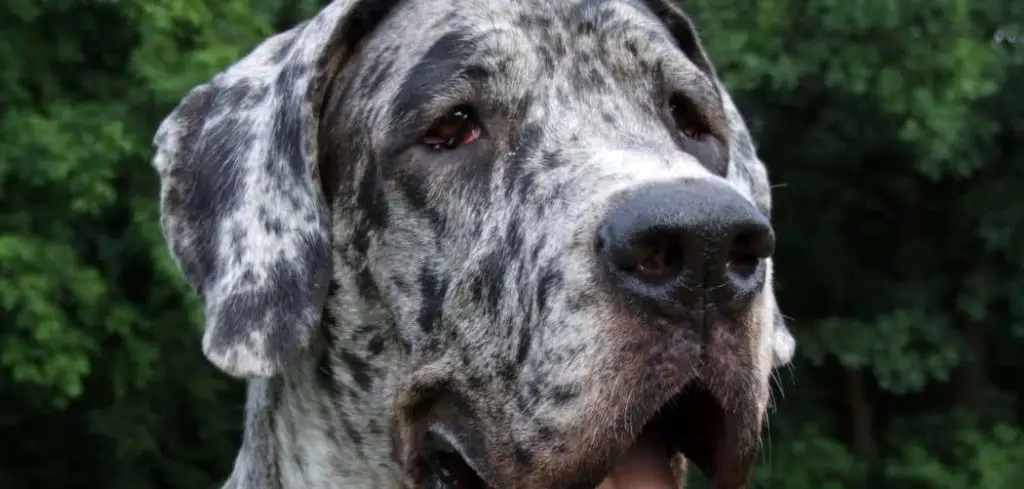Fluid accumulation around the heart in an old dog can be a serious and alarming health issue.
This condition often affects the dog’s breathing, energy, and overall well-being, making timely attention crucial.
We outline the common causes of fluid around the heart in old dogs, what you can do at home, and when to seek veterinary help.
Old Dog Fluid Around Heart — Why It Happens
Fluid around the heart in old dogs is often linked to heart disease, infection, or systemic conditions. Aging can weaken the heart’s function, making fluid buildup more likely. Trauma, cancer, or low protein levels can also contribute.
The presence of fluid may compromise heart function, leading to breathing difficulties and fatigue.

Old Dog Fluid Around Heart: Common Causes
Congestive Heart Failure
Congestive heart failure occurs when the heart cannot pump efficiently, causing fluid to accumulate in the chest or around the heart.
Symptoms may include labored breathing, coughing, lethargy, and a swollen abdomen.
This condition is serious, as fluid can restrict heart and lung function, potentially becoming life-threatening without treatment.
Read more: Old Dog Coughing and Gagging (Here’s Why)
Pericardial Effusion
Pericardial effusion is the accumulation of fluid in the sac surrounding the heart, often due to inflammation, infection, or tumors.
Signs include rapid or labored breathing, fainting, and weakness. This condition can compress the heart, reducing cardiac output, and may require urgent veterinary intervention.
Heart Tumors
Heart-based tumors, such as hemangiosarcoma, can cause fluid to collect around the heart.
Owners may notice sudden weakness, collapse, or distended abdomen. Tumors can grow silently until severe fluid accumulation occurs, making early detection critical.
Low Protein Levels
Protein deficiency from liver disease, kidney disease, or malnutrition can allow fluid to leak into body cavities, including around the heart.
Symptoms include lethargy, swelling in other areas, and poor coat condition. Addressing the underlying cause is necessary to restore proper fluid balance and prevent complications.
Infections or Inflammation
Bacterial, viral, or parasitic infections can lead to inflammation of the heart or surrounding tissues, resulting in fluid buildup.
Symptoms may include fever, lethargy, rapid breathing, and loss of appetite. Treating the infection promptly can prevent worsening of the effusion and protect heart function.
Trauma
Physical injury to the chest can cause bleeding or fluid accumulation around the heart.
Signs might include sudden collapse, difficulty breathing, or visible injury. Immediate veterinary evaluation is essential to stabilize the dog and prevent fatal outcomes.
What to Do If Your Old Dog Has Fluid Around Their Heart
Monitor your dog closely for breathing difficulties, weakness, or sudden changes in activity.
Keep your dog calm and limit strenuous exercise, as overexertion can worsen fluid accumulation.
Follow any veterinary instructions carefully, including medication schedules and dietary adjustments to support heart health.
Ensure your dog has a comfortable resting area with easy access to water and food, helping reduce stress and support overall health.
Track any new or worsening symptoms and report them to your veterinarian promptly, as timely intervention can prevent serious complications.
When to Call or Visit Your Vet
Seek veterinary care immediately if your old dog:
- Shows rapid or labored breathing, persistent coughing, or difficulty lying down comfortably.
- Collapses, faints, or displays sudden weakness or confusion.
- Has a distended abdomen, swelling in the chest, or signs of fluid buildup in other areas.
- Shows loss of appetite, lethargy, or other sudden changes in behavior or activity.
Prompt veterinary evaluation is critical to diagnose the underlying cause, manage fluid accumulation, and prevent life-threatening complications.
Read more: Old Dog Vestibular Disease (Explained)
Key Takeaway
Fluid around the heart in an old dog is a serious medical concern that often stems from heart disease, tumors, infections, or protein imbalances. Early recognition and veterinary care are essential to manage the condition effectively.
At-home care includes monitoring for breathing difficulties, limiting strenuous activity, following veterinary guidance on medications and diet, and providing a comfortable environment.
Consistent observation and timely intervention can protect your dog’s heart health and improve quality of life, ensuring your senior pet remains as comfortable and safe as possible.
